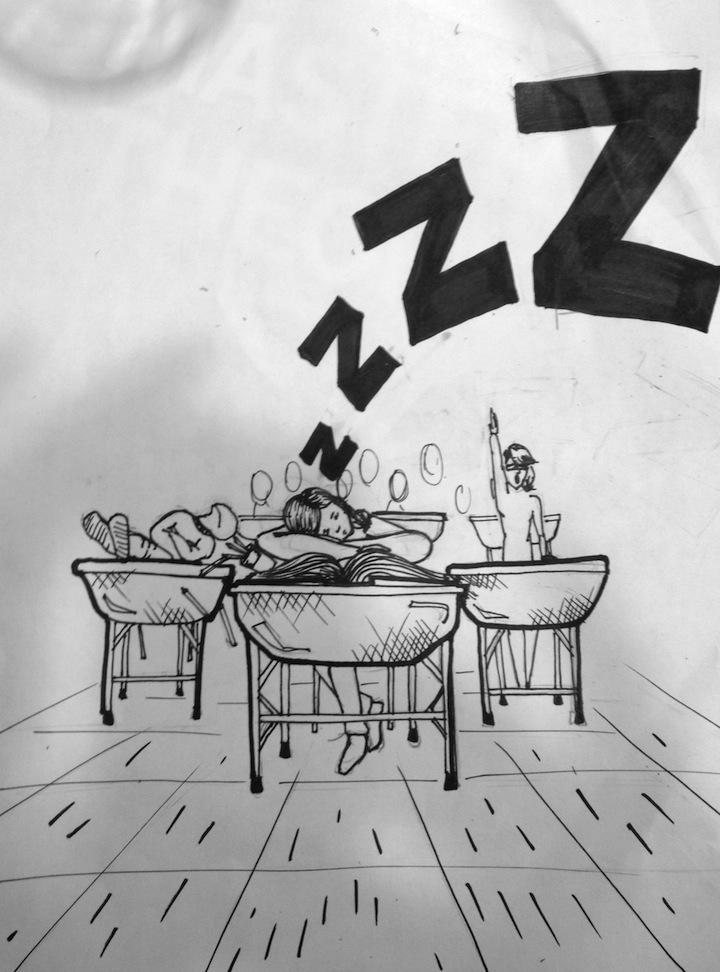Sleepy students are sacrificing self care for schoolwork
On a Monday morning, students are waking up early to slip through the doors by 7:50 a.m. We go from class to class, then to sports then back to more homework. We finish the day late at night, continuing this cycle daily. The fact is, Blake students are tired. We aren’t getting enough time each day to simply sleep, and this puts a dent in how full we can be as people.
The results from the Challenge Success survey taken by Blake high-schoolers last spring reveal that on an average school night, students are only getting 6.5 hours of sleep. That is 3 hours less than the recommended 9.5 by the National Sleep Foundation. According to the Independent School Health Check also taken by Blake students last year, 79% of students said they went to bed after 11 p.m. every night and only 8% of students reported that their sleep habits didn’t interfere with their daily functioning. That means that nearly every student at our school deals with the frustrating effects of not receiving vital sleep.
Every student may have a different reason for not finding enough time to sleep from over involvement in clubs and sports to procrastination but a common thread seems to be pressure to perform well combined with the modern day catastrophe of over scheduling.
Ellie Burton ’16 says, “At Blake you have a lot of pressure to get good grades, and between lots of home work and lots of sports kids aren’t putting sleep as a priority.” Students are becoming so caught up in the pressure to succeed from teachers, parents, and themselves that they are forgetting the most important thing: taking care of themselves.
As teenagers receive less and less sleep, it can deteriorate their ability to focus, solve problems and remember lessons. It can also cause aggressive behavior and lead to illness. Natalie Norberg ’15 said that when she doesn’t get enough sleep it feels “like the world is going to end. Basically like there is going to be an apocalypse if I don’t sleep.” Niki Anderson ’17 says he feels “tired and like it’s much harder to focus.” These students also claimed that it was harder to participate fully in extracurricular activities with little sleep.
By adding more and more to our daily lives, causing us to be much more tired, we are actually taking away from the experiences we could be having.
Sleep is as vital as the oxygen you breathe and the food you eat, so making sleep a priority is essential. If you find yourself struggling to get in those 9.5 hours, just start with something simple like finding a new way to manage your time or even just sneaking in a twenty minute nap. To be the best people we can be, we need to understand that taking care of ourselves is the real success.









